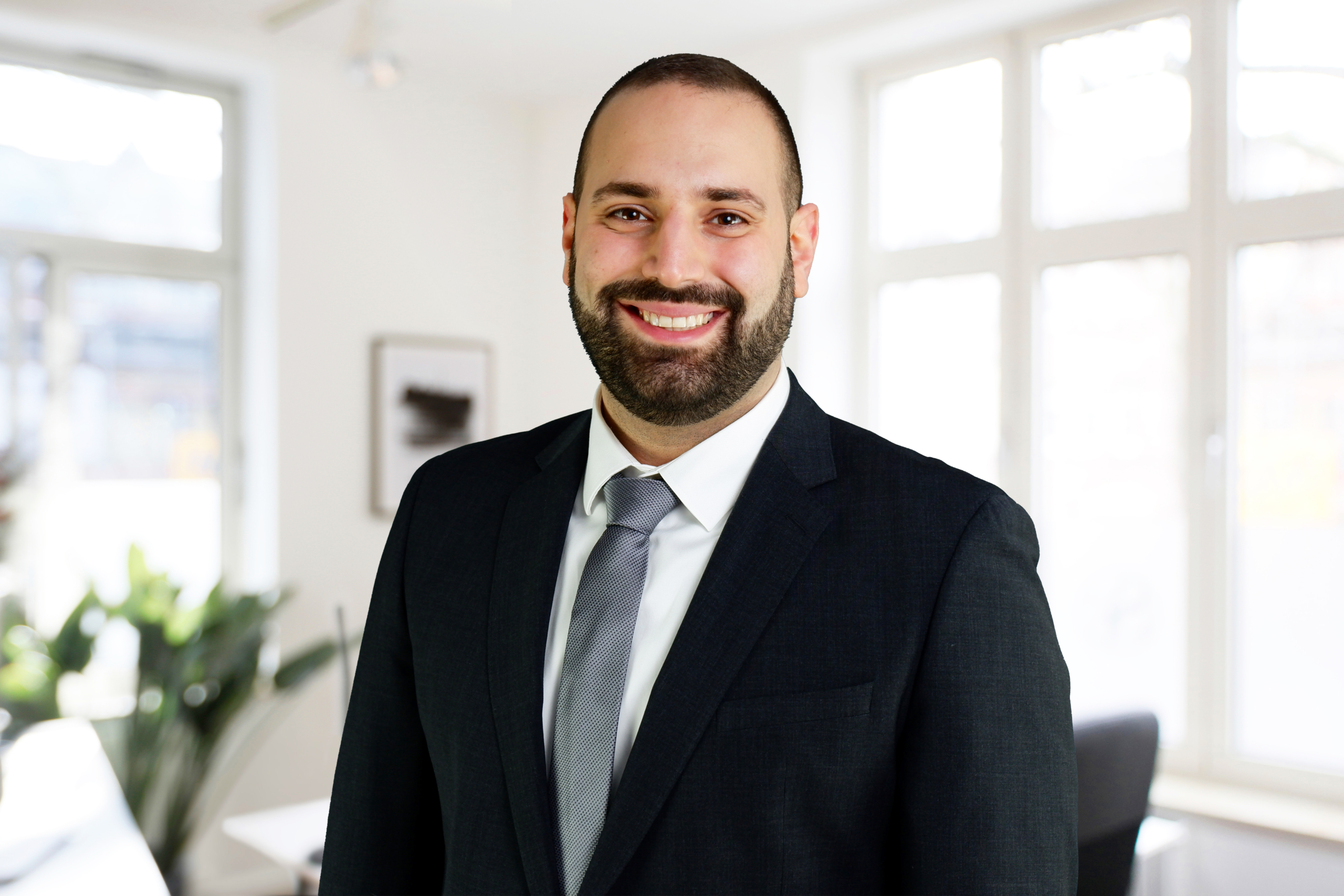An interim injunction is an adequate means of taking quick and effective action against copyright and trade mark infringements or breaches of competition law. These occur quite frequently in everyday life. For example, a photographer’s copyright is infringed as soon as third parties publish their photos without authorisation. Trademark infringement can occur, for example, if sellers on sales portals on the internet advertise their products with well-known brand names or sell fan articles without a licence.
Schlun & Elseven Rechtsanwälte offers private and business clients comprehensive legal advice on copyright and trademark law. Our lawyers have many years of experience in applying for preliminary injunctions and defending against them. Contact us today to resolve your matter as quickly and effectively as possible.
What is an Interim Injunction?
Since legal proceedings often take several years and the plaintiff cannot be expected to accept the defendant’s infringement during this time, it is possible to apply for an interim injunction with the court.
With an interim injunction, an infringement of copyright or trademark law, such as the unauthorised use of a photograph, can be stopped within a few days or weeks.
An application for an interim injunction is filed with the competent court. There is a claimant (the person complaining of an infringement) and a respondent (the person accused of the breach by the claimant). The injunction prohibits the defendant from the conduct in question and threatens the defendant with the payment of an administrative fine or, under certain circumstances, even imprisonment. These means of pressure make the interim injunction particularly effective, especially since administrative penalties can be as high as €250,000.
The interim injunction is thus a court order for injunctive relief. It is not a permanent but only a provisional court decision – however, it can become permanent if the defendant recognises the interim injunction (through a so-called final declaration).
The preliminary injunction is regulated by law in the German Code of Civil Procedure (ZPO) in §§ 935 to 942.
Applying for an Injunction
If you have found that someone infringes your copyright or trade mark rights, applying for an injunction can effectively defend your rights. Our copyright lawyers offer legal advice tailored to your case to find the most efficient and cost-effective solution. The first step is to send a reminder with a request to submit a cease-and-desist declaration with a penalty clause. Although this is not a mandatory prerequisite for applying for an injunction, it is necessary to avoid bearing the costs of the subsequent court proceedings. We will be happy to prepare and send you a legally compliant warning notice.
Thus, in many cases, the matter is settled as soon as the recipient has issued such a cease-and-desist declaration. However, if they do not, applying for an interim injunction at the competent court may make sense.
It must be shown that the applicant has a claim for a request and that there is a ground for a request to apply for an interim injunction.
A claim for an injunction exists if the applicant has the right to demand that the defendant refrains from a specific action. They have the right if the defendant infringes the rights of the applicant with their conduct, i.e., if there is a trademark infringement, a copyright infringement or a competition infringement. Accordingly, the applicant must be the owner of a trademark, otherwise be able to rely on trade mark protection, or must be the author.
Furthermore, there must be a reason for the injunction. The applicant must show why the injunction enforcement is urgent, i.e., why waiting for regular legal proceedings is unreasonable. Such reasons are, for example, that otherwise irreparable damage would occur or that further infringements are likely (risk of repetition).
However, such urgency must be rejected if the applicant has been aware of the infringement for a long time – so it is essential to act quickly. Some courts already reject urgency if the applicant has been aware of the infringement for more than one month. Contact our lawyers as soon as possible if you are affected by a copyright or trademark infringement.
Since the particular urgency under § 937 (2) ZPO is usually affirmed in practice, the court then decides on issuing an interim injunction without an oral hearing. However, injunctions issued without an oral hearing are not enforceable abroad, as they do not meet the requirements of the Regulation on Jurisdiction and the Recognition and Enforcement of Judgments in Civil and Commercial Matters (CPR). An oral hearing should occur in advance if the defendant is domiciled in an EU Member State.
How to React to the Receipt of an Interim Injunction
After receiving a warning or temporary injunction, various possible courses of action exist. First of all, it is essential that you do not ignore them and do not sign anything hastily. Our lawyers will be happy to assist you and advise you on the best possible next steps. Do not hesitate to contact us.
How a Warning is Issued
As mentioned above, a warning letter is regularly accompanied by a cease-and-desist declaration with a penalty clause. In addition to a contractual penalty in the event of a repetition of the warned action, this declaration may also contain claims for damages. These costs can be considerable. It is therefore advisable to seek legal advice before signing and to weigh up whether changes to the content in the form of a modified cease-and-desist declaration can be considered or whether filing an objection is a better option. Our copyright lawyers are familiar with dealing with cease-and-desist letters and will be happy to advise you on how to proceed.
Opposition Against an Interim Injunction
If you have received an interim injunction for copyright or trade mark infringement, you can file an opposition against it under § 924 ZPO. In the opposition, the defendant must explain why the injunction claim or ground for an injunction does not exist. It should be noted that the objection does not have a suspensive effect, i.e., the injunction remains in force despite the objection. After the opposition has been filed, the court sets a date for oral proceedings. Lawyers must represent the parties at the hearing. After the hearing, the court decides whether to lift the injunction or confirm it by judgment.
If the court confirms the injunction, an appeal to the Higher Regional Court under § 511 ZPO is possible as a final remedy.
Enforcement of Main Proceedings
Another way to proceed against an interim injunction is for the defendant to file an application for enforcement for the main proceedings. Under § 926 ZPO, the court sets a time limit for the applicant to file an action. Such a procedure makes sense if the defendant is expected to be able to defend themselves in the main proceedings. This may be the case because more evidence will be considered in the main proceedings. This decision must be weighed up in each case. Our trade mark and copyright law experts will check with you whether an application for enforcement would be advantageous in your case. In addition, there is the possibility that the applicant fails to file an action within the time limit and that the court consequently lifts the preliminary injunction.
Final or Cease-and-Desist Declaration
There are also constellations in which the submission of a final declaration is the defendant’s most advantageous course of action. In this way, the possible costs of the main proceeding can be avoided. By making a final declaration, the defendant undertakes to unconditionally recognise the interim injunction’s contents and waive all legal remedies against the injunction. Such a final declaration should be made within two weeks. Therefore, it seems sensible to seek advice immediately on whether submitting a final declaration is advantageous in your situation.
As mentioned above, it is still possible to submit a cease-and-desist declaration with a penalty clause. In doing so, you undertake to refrain from the conduct in question and, in addition, to pay a contractual penalty in the event of an infringement.
How to React to an Impending Interim Injunction
If you have not yet received an interim injunction but expect to do so, it may be beneficial to file a protective letter. In this letter, you can describe the facts of the case from your point of view and request that an interim injunction does not take place without a prior oral hearing. In this way, your description of the facts may lead to a rejection of the application for an interim injunction, or you will be able to state your legal opinion at the hearing that the application will not be granted.

Practice Group: German Intellectual Property Law
Practice Group:
German Intellectual Property Law
Contact our Lawyers for German Intellectual Property Law
Please use our online form to outline your request to us. After receiving your request, we will make a brief initial assessment based on the facts described and provide you with a cost offer. You can then decide whether you would like to engage our services.









